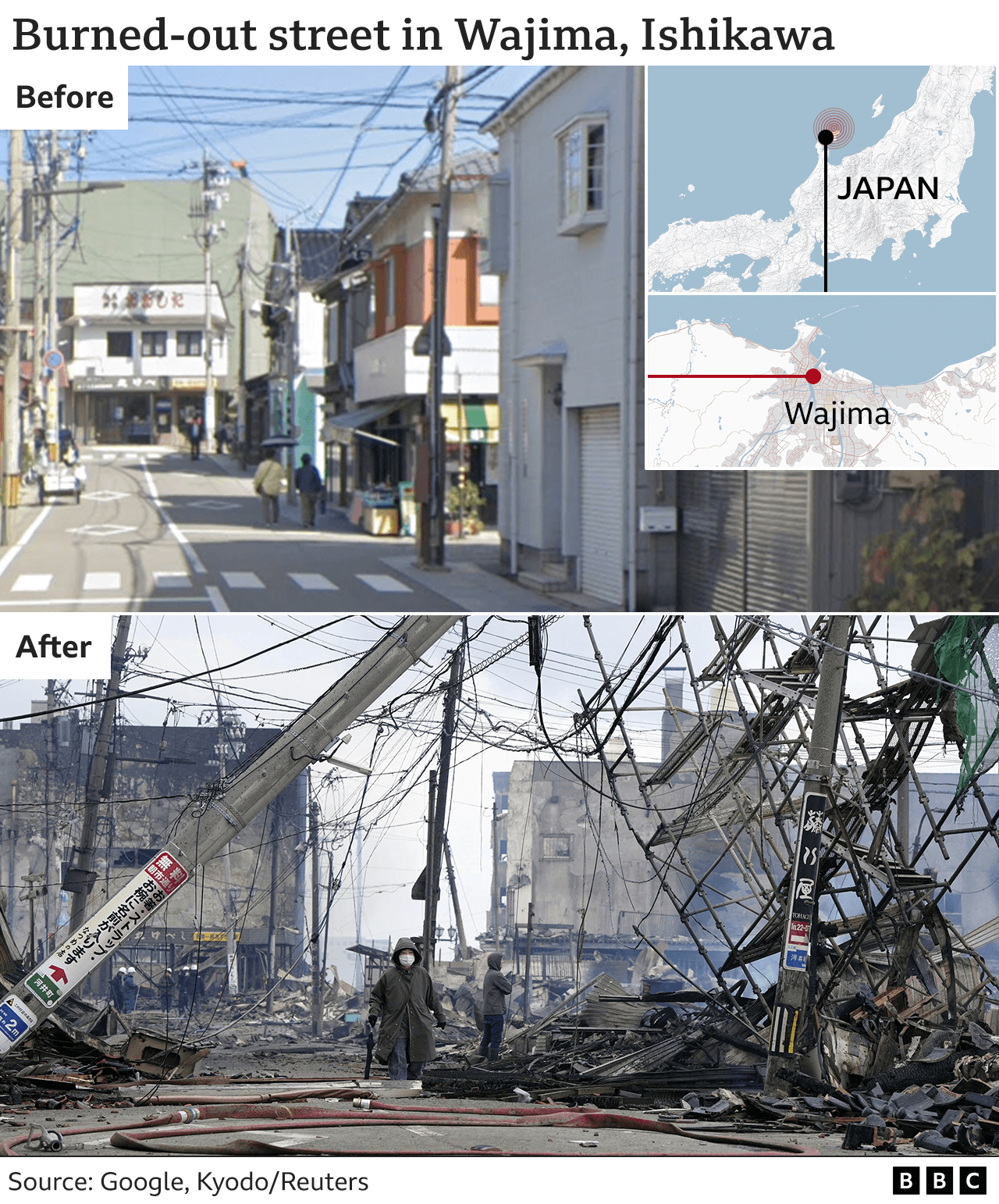-

-
-
Loading

Loading

Japan is currently dealing with the aftermath of a powerful earthquake that struck on New Year's Day, resulting in the death of 55 people. The quake caused homes to collapse, buildings to catch fire, and extensive damage to roads, which has made the rescue efforts of emergency services challenging. The Noto peninsula in central Japan was the epicenter of the 7.6 magnitude earthquake. Japanese Prime Minister Fumio Kishida described the situation as a "race against time" for rescuers to save survivors. The government has dispatched around 3,000 rescue personnel to reach the affected areas of the Noto peninsula. Aerial surveys have revealed numerous fires and widespread damage to buildings and infrastructure. The city of Wajima, located on the northern tip of Noto, has been cut off from land routes. The Japanese military has been providing essential supplies like food, water, and blankets to those forced to evacuate their homes. So far, approximately 57,360 people have been evacuated. Tens of thousands of meals are being delivered to the affected region to support the residents. After the initial earthquake, aftershocks continued to occur throughout Monday and Tuesday. Yoshimasa Hayashi, Japan's chief cabinet secretary, alerted people to remain vigilant as more earthquakes, with intensities of up to 7, could happen within the coming week. One notable aftershock was a 4.9 magnitude quake that hit Ishikawa, located 155km south of the Noto peninsula. Initially, major tsunami warnings were announced by the Japanese government. However, these warnings were subsequently downgraded, and all tsunami advisories were lifted along the Sea of Japan. This means that there is no longer a risk of a tsunami occurring in the affected areas. Many residents have been sharing their experiences of the quake, which lasted several minutes. Toshio Iwahama, an 82-year-old resident of Nanao, mentioned that his wooden home partially collapsed. Despite experiencing multiple earthquakes, he had never encountered tremors of such magnitude. Emma Ward, a 41-year-old British tourist on a skiing holiday in Hakuba, described the earthquake as sudden and intense. Her group sought shelter under a table at a café until the tremors subsided. She mentioned that the fear of not knowing how intense the earthquake would become was the most distressing part of the experience. Several others also related the earthquake to the devastating 2011 earthquake and tsunami that claimed thousands of lives and caused a nuclear plant accident in Fukushima. Apart from the earthquake's impact, a Japan Airlines plane caught fire after colliding with a coastguard aircraft at Tokyo's Haneda airport. The coastguard plane's five occupants lost their lives, but all passengers and crew on the Japan Airlines plane managed to escape unharmed. Japan, located in the Pacific Ring of Fire, experiences frequent seismic activity, prompting the country to develop an advanced tsunami warning system.